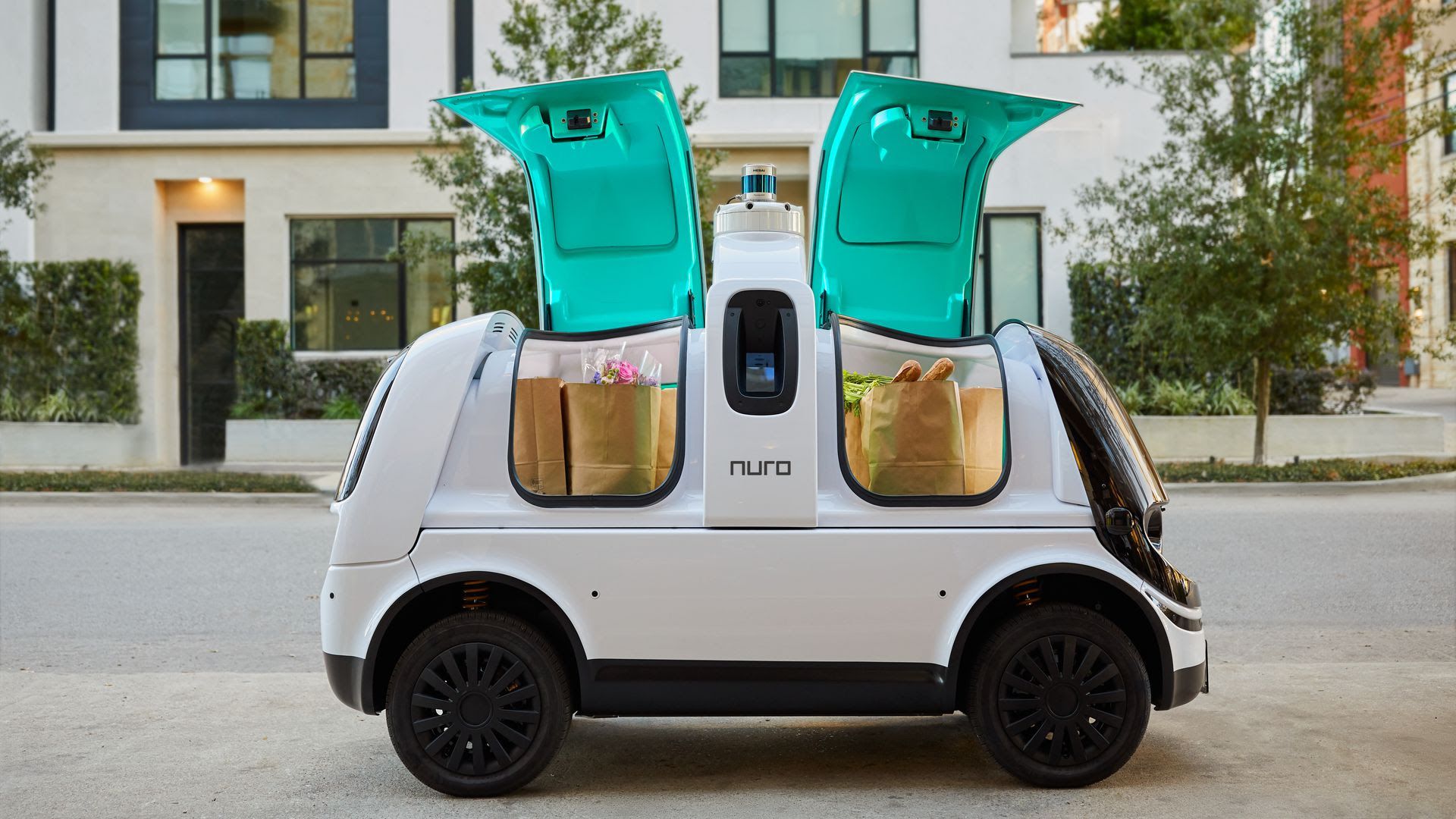Coronavirus stalls Nuro's driverless delivery testing
Add Axios as your preferred source to
see more of our stories on Google.

Nuro's R2 driverless delivery vehicle. Photo: Nuro
Nuro received a permit this week to test its driverless delivery vehicles in Silicon Valley — where customers could really use the service right now.
Yes, but: The humans who would need to set the vehicles in motion can't do so because of coronavirus restrictions.
The big picture: Autonomous delivery seems made for the pandemic we're facing now. Home delivery has exploded as people hunker down across the country, and contactless delivery only makes more sense at a time when people are supposed to be avoiding one another.
Driving the news: Nuro's driverless testing permit is only the second one issued by California's Department of Motor Vehicles, after Waymo.
- It allows Nuro to test real goods deliveries for its partners like Walmart and Kroger, though it may not charge a delivery fee until it receives a statewide commercial permit for fully driverless operation.
- For now, its operating domain is limited to San Mateo and Santa Clara counties, and the number of driverless vehicles is capped at just two.
The catch: Nuro is close to finishing up development work on its new R2 low-speed driverless delivery van, which just got the green light from the federal government. But that work is on hold during California's shelter-in-place order.
- And Nuro's original R1 driverless test shuttles are also out of commission because they require monitoring by engineers in a chase car.
- "We have to consider the safety of all those workers," says David Estrada, Nuro's chief legal and policy officer.
The bottom line: Nuro will have to wait for the crisis to pass to try to demonstrate its value. In the meantime, it can still offer deliveries with a human-driven Toyota Prius.
Go deeper: Automakers lay out back-to-work playbook for a pandemic
